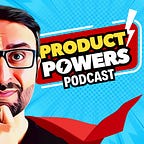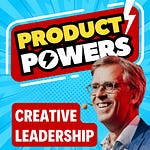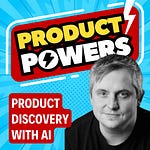Get ready for an eye-opening conversation in this episode as we explore the groundbreaking concept of Time Intelligence and its potential to revolutionise the way we work. In the episode Helen Beedham (award-winning author) shares insights from her book The Future of Time: How ‘re-working’ time can help you boost productivity, diversity and wellbeing.
We share research on cultural norms and traits that define time-intelligent organisations. Together, we dive into practical strategies and real-life success stories of companies that have transformed their work culture by embracing innovative approaches to working hours, meeting schedules, and team dynamics. Don't miss this captivating episode that will empower you to rethink time management and unlock the secrets to productivity, well-being, and a harmonious work-life balance.
Helen Beedham (Award-winning author)
Helen Beedham, MA Cantab, helps business and HR leaders create ‘time-intelligent’ organisations that gain a better return on the time their employees invest in work. She is an organisational expert, speaker, host of The Business of Being Brilliant podcast and Business Book Award-winning author of the Amazon bestseller The Future of Time: how ‘re-working’ time can help you boost productivity, diversity and wellbeing. Helen runs workshops to develop ‘time intelligent’ teams, coaches people on transformative time management practices, and gives talks on productivity, diversity and wellbeing topics. She comments on the future of work at conferences, industry panels and client events and is regularly featured in national, business and HR press including the FT, Financial News, Forbes, FastCompany, theHRDirector and HR Review. Helen has over 25 years’ experience in corporate workplaces and professional careers with expertise in organisation and team effectiveness, HR, Diversity & Inclusion, culture change, people management and time management.
👉🏽 LinkedIn: Click Here
🔥 Our Sponsors: How do you know where to invest your efforts when helping your Agile teams? You could simply ask them, but what if you need a more scalable and robust approach? One platform that I personally use and recommend is Comparative Agility. It has the world's largest Agile maturity index with over 4m data points from over 14,000 organisations. You can try it out completely FREE at the following link, and be sure to let me know your thoughts:
⚡️ In each episode, Paddy Dhanda deep dives into a new human Superpower and practical advice on how you can apply it immediately.
👉 Sign-up to Newsletter: https://www.superpowers.school/subscribe
👉 YouTube: https://www.youtube.com/c/paddydhanda/
★ BUY ME KO-FI ★
If you enjoy the podcast, then you can donate a small amount here as a token of your appreciation: https://ko-fi.com/paddydhanda
Transcription:
[00:00:52] Paddy Dhanda: Hey folks. Thank you for joining us for another episode of the Superpower School podcast. I'm your host, Patty Dander, and on today's show I have an award winner.
Someone who is an organizational expert, speaker podcaster, and I mentioned award winner. She's literally just won an award at the Business Book Awards in the category of people, culture and management. She's the author of The Future of Time, which sounds like an amazing title. I'm really intrigued to know what it's all about.
Welcome to the show, Helen Beedham.
[00:01:28] Helen Beedham: Thank you so much for having me, Paddy. I'm really delighted to be joining you in the recording studio.
[00:01:33] Paddy Dhanda: Ah, thank you Helen. And I'm chuffed that I'm speaking to another Brit .
[00:01:37] Helen Beedham: Yeah, I'm delighted to add to the mix. As about as British as they come.
[00:01:41] Paddy Dhanda: Your english is quite proper, way more proper than one, so that's a good thing. Yeah. So Helen what superpower would you like to bring to this episode?
[00:01:51] Helen Beedham: I would like to bring the superpower of helping people and teams and organizations to grow what I call their time intelligence.
And I can explain a bit more about that as we chat.
[00:02:04] Paddy Dhanda: Oh, wow. There we go. Cliffhanger right there. Before we get into that you and I were just talking briefly before we kicked off, and I, I was really intrigued by your story of how you've got to this point because you've gone through a fair few experiences along the way.
I mean, I guess you didn't just wake up, at the age of 10 or 11 and decide you're gonna write this book and this was a thing you were gonna do. So what's led up to this moment?
[00:02:29] Helen Beedham: Yeah, weirdly, I have my English teacher from secondary school's voice still in my head, remembering when she told me not to take English A level because alongside French and Spanish, which I'd also chosen.
She said, oh, it's not your strongest subject, and I think you might struggle with all of those books. And so it's quite ironic now that I've ended up actually writing a book that is doing really well. But I have always had a lifelong love of books and a reading of all sorts. And I guess so career-wise I did languages at University, French and Spanish, which led me to know that I wanted to work in business, but that was about as much as I managed to narrow it down. And everyone always tells you languages, open lots of doors and, but it also doesn't help you decide where you really want to focus, perhaps the start of your career. So I applied to loads of different organizations.
Didn't hear back from a lot of them. Got a few interviews and ended up with a couple of offers and I ended up accepting a role on the graduate management training scheme at Harrods, the big retail, very famous retail store in London, mainly because I thought that would give me a really good introduction to business and I would get to rotate around different departments and learn different skills from shop floor to distribution, to HR to marketing and sales, et cetera.
And I worked there for two years and it was great fun. But my, I guess my career there took an unexpected turn fairly on when I was asked to go and act as an interpreter for the chairman at the time, Muhammad del fired on a buying trip to Cuba. So I went along to interpret actually one of his directors and had this very surreal experience for about a week out in Cuba, attending lots of very high profile meetings and sitting on yachts for debriefs and things and thinking, is this really what the world of work is like?
And then on the back of that, ended up working with that director for the remainder of my time there, helping kind of problem solve bits of the store that weren't working well and introducing some new initiatives. And that led me to realize that actually it wasn't being in retail that I loved. I was kind of tired of never having a Saturday off and it wasn't great pay.
So, I then moved into management consulting and started working for a big global organization called Taos Perrin at the time. And I spent the next 15 years there because I absolutely loved it.
It really stretched me intellectually, creatively. I had some wonderful work friends and some fantastic mentors, and I love the variety that consulting brought me. I got to work with all sorts of different clients, private and public sector, and in different industries, and just really grew my consulting and my business skills.
I even met my husband there. We started seeing each other and got married many years later and have grown a family together. So that was a fantastic work experience.
I really only stopped working there after 15 years because our daughter was born, she's now 11. And I'm also stepmom to two wonderful grownup children William and Rebecca. And have known them since they were seven and nine.
After taking a couple of years out in my new role, kind of New Parenthood life, I decided it was time to go back into the world of work. I was kind of missing that opportunity to use my brain a bit more much as I was loving the parenting side and ended up helping to grow a small professional network, which was called city mothers at the time.
As it happens, you get chatting to the person next door and discover you've got lots in common and professional background in common. And so I started helping her to grow this professional network for mothers returning to city careers.
And juggling home and work life. And at the time it was all very voluntary. No, there were no paid roles, but it was growing very fast and successfully. And I became the first employee and then a director and business partner and helped her run it for six years. And we basically organized tons of events, networking events for people on work, family, career and wellbeing topics, and they were hosted in and around the city and we had lots of different corporate members. So I looked after all those relationships and with our corporate clients and hosted lot of the events and sourced a lot of the speakers and loved that. Learned lots of different skills because I'd kind of gone from a big corporate environment that had also gone through a couple of mergers to then working for a startup.
So it was a very different experience and taught me a load of fantastic digital skills that in the corporate world, there would've been lots of other people doing those things. So, when you're, one of the joys of kind of being in a small company is you get to wear many hats and learn lots of different skills.
So I really enjoyed my time there and learned a lot from it. And then just before Covid hit, had reached the conclusion that actually I was ready to strike out independently and explore what the next chapter of my working life might look like, and it wasn't very fixed at that point. I spent quite a long time having conversations with people about career transitions and how you figure out what you might do next if you know you want to change, but you're not quite sure what that is.
One conversation in particular set me off, I guess on a particular part of my journey since then, which was becoming an author and I had always wanted to write a children's novel.
It was a conversation with this person who's also a speaker I know and had written her own business books where it dawned on me that actually. The thing I could far more easily write about was our world of work and people's experiences of our world of work. Because that's really what I've been doing all through my career, researching people's experiences of work, what helps 'em thrive, what gets in the way, how teams can work together effectively, how to build really strong organizational cultures.
And so the seed was sown and over the next few weeks, I was noodling on it. And I can tell you a little bit more as we chat, if you like, about how the book came into being.
[00:08:54] Paddy Dhanda: Oh, wow. There's so much there. I was thinking where do I start in terms of unpacking this? I'm gonna take you back to your your story that you mentioned about Mohamed Alpha and you just glossed over and went.
I just did some translation for this chairman. I mean, for many of us or for many people that are going through their careers when they're faced with meeting big leaders in their organization, that's quite a daunting task. I mean, for you at that age, how did you deal with that?
Because for me, I remember even talking to one of the most senior people that I worked with in my early years was really scary. I was like, oh my God, what if I make a mistake? I'm gonna get fired. And yet, as we know in reality like that's never the case unless you do something completely crazy.
But from your perspective, what did you learn from that experience and for anyone else who's in that situation? Any advice?
[00:09:47] Helen Beedham: Yes. And my first reaction when I was asked to go and meet the chairman, because I think he was kind of interviewing a couple of people that could potentially help with this bit of work, that was my first reaction to is, oh no, what have I done wrong?
What am I about to be fired? What have I done that I'm not aware of? But I would say that the experience taught me to actually say yes to unexpected stuff that comes up and opportunities where that maybe come your way that you're not sure where they're gonna lead, you're not sure what it's gonna be like, but you've got the inkling that it might be a bit exciting or it might offer something different or just a really interesting new experience.
And for me, what I'd loved was speaking French and Spanish i'd. I'd invested years in learning them, and that was one of the things I love most. So that was attractive to me already, that I was gonna get to go and do that. And I was gonna get to go to Cuba and I was gonna learn about things like how cigars were made in cigar factories and how the rum industry worked and go to meetings with heads of ministers of trade and industry and stuff.
So I knew enough to think this sounds a bit special, but different, and why wouldn't I give it a go? And it was, and I'm glad because I think it has. What I've learned since then in saying yes to other things is that even if that experience doesn't bring everything you'd hoped for or turn out quite the way you'd anticipated. It can very often open another door that wouldn't have opened had you not taken that leap of faith in the first place. So even now as an author I get invited to do lots of talks. Sometimes I'll say yes to one even though I'm not being paid for it. But because I really appreciate the organization that's asking me or the network that's asking me.
And I will always find something rewarding from that conversation and also something unexpected that might benefit me and the other party, like a really useful introduction or a really great recommendation for something that's gonna help me in something I'm working on. So I would always say yes to as much as you can and it'll open lots of doors.
[00:12:11] Paddy Dhanda: Oh, I love that. Whenever I'm on holiday, especially with friends. I've got this habit of talking to random people and they often laugh and say, oh, here he goes again. And often I'm talking to someone who's completely different to me. It could be, somebody who's a street seller, or it could be someone who does something completely different.
But I totally agree because you just never know where these conversations are gonna go. And what you might learn from them. And I've used that. Ethos as well in life, and I think it's a really valuable lesson for all of us, is don't be afraid to talk to people, especially those that are different because there's always an opportunity, lingering around the corner.
They come through those conversations sometimes, and even you and I talking earlier, as we started this episode, my brain was buzzing with ideas just from even that brief chat that we had. So yeah, totally love that. Right. I'm gonna get onto your book now because I'm super excited.
It's there in the background, so anyone that can see the video version of this, the future of time, so. You mentioned you started to think about the book and you started put putting together the brief. Tell us a bit more about that process of when you decided. You were gonna go and do this?
[00:13:26] Helen Beedham: Yes. So it followed a very particular process actually, because the person I mentioned earlier who had kind of helped this idea to take root in my mind, had already published her own books, and she mentioned her publisher to me.
Which is Practical Inspiration publishing led by the founder, Alison Jones. And she said, oh, have you thought about writing a business book and have you come across Alison because you know you can do her proposal challenge? So I thought never heard of that and went and had a little look online and thought, actually this looks fantastic.
And so what it is, it's three times a year that. Alison runs her business book proposal challenge where you participate, you pay a reason reasonably small fee to participate and every day for 10 days, she sets you a task to complete around building out a publisher ready proposal for your book.
And you get fantastic feedback from Alison, but also from your peers on that program as well. We will share kind of what our thinking and what we're doing. So I started off with the ambition of just. Just road testing. The idea for my book really I hadn't got, as far as a table of contents. I didn't know what was gonna actually fill the books pages.
I just had this idea and I wanted to kind of grow it and test it and stretch it and see if it had the potential to become a book. And I'm not gonna lie, it was a lot of work every day and some days were more meaty tasks than others. But I would say I did. Easily three months of thinking and researching.
In two weeks I just made massive progress on the whole idea. And you put together the. Title subtitle, which is How reworking Time can help you boost Productivity, diversity and Wellbeing. The table of contents, the back copy, you do competitor analysis and you think about the pricing and the marketing plan.
So it's a very comprehensive program and piece of work. And at the end of it I thought, gosh, this is, Sounding like it's got potential. I can see how this book could come to be written. I literally have my table of contents that I could then sit down and write each chapter, even if bits of it still had gaps to be filled in terms of research and stories and examples.
Completed proposals at the end of the two weeks period and offers them a full traditional publishing contract. And quite incredibly, she chose mine. So that's how I went very quickly from having an idea at the beginning to holding a publishing contract about kind of four weeks later really, and then spent the next nine months writing it in full. So, so that's how it came about. There are different routes for people. Some people can obviously self-publish, other people can go down what's called a publishing partner route, where you work with a traditional publisher, but you pay more of the costs upfront and get a bigger percentage of the net revenues from your book.
And there's lots of different publishers out there to go and approach. And often you need the whole proposal ready and maybe the introduction and a couple of chapters written as well so they can see how that's shaping up. So yeah, so it's the future of time and it's all about how the way we think about and manage our time at work is broken because it's not serving us well as individuals.
It's not helping us to be. Productive. It's damaging our wellbeing and the way we manage time is actually making it harder for certain kinds of people to get in and get on in their chosen careers. But I also make the point that it's not working very well for businesses either. Because it's damaging workforce wellbeing.
It's causing a lot of wasted time and they it's not helping organizations close some of their diversity diversity gaps, for example. And it, there's a real commercial benefit effectively to helping people invest their time that they spend in work every day, every week in more productive, rewarding, enriching ways, whether that's from achieving more, by working less hours, fewer hours, or by creating stronger teams, stronger communities, and more.
Satisfying, enriching work cultures. So that's what the book's about. And in it I talk about concepts like our time blindness, which is our inability to notice how we're spending our time at work and the fact we don't talk about it a great deal. And I give some examples of what I call our time norms, which are like cultural norms around time from the cult of busyness to not valuing downtime. As much as, valuing activity and time on a task. And then I set out the six traits of what I call time focused, time intelligent organizations. And I then get very practical and talk through 24 time solutions. So 24 different ways that organizations can. Use, invest their time much better.
And I think the big difference I would explain here is that I'm not talking about time management from an individual perspective, which is traditionally what people associate with the concept of time management. It's how I manage my day, et cetera, to be as efficient as possible. What I'm talking about is the wider context that we are all operating in because.
How I manage my time is yes, a great deal up to me, but I don't work in a little isolated bubble. Our work is so interdependent and so interconnected. We have to talk about the boundaries of what, how we interconnect with other people, and what we're all spending our time on, because otherwise we're missing a massive chunk of the picture.
And we're not fully in control of our time at work. In fact, a lot of people say they have very little control over their time at work. So I'm looking at it through a more organizational lens and saying, actually, how do you create organizations that are structured in a certain way that have certain work processes that are really smart about the tools and technology they use and whom really manage and develop and reward people?
In much better ways so that for every hour that people invest in work, they and the business are getting a far better return on it, on that time investment. So that's a quick cantor through some of the ideas and practical strategies in the book. And what, in the third part? There are three parts.
In the third part, actually, I get very practical and explain, okay. If you think you are suffering from some of these, challenges in your organization, then what do you do about it? And my answer is it's not a one size fits all approach. Much as you might love to take the answer off the shelf and say, here it is.
You have to figure out what's right for your business for your work culture, for your stage of maturity and for what it is you're trying to achieve. So I give people. Some frameworks and general approaches and lots of practical examples that they can use to then actually figure out, okay, how do we really make better use of our working time here in our team or organization?
Got it. Wow, that's
[00:20:51] Paddy Dhanda: sounds fascinating. I was just listening to some of the points you're making there and you mentioned there are some examples in the book about time intelligent organizations. Could you give us a couple of examples of those organizations and why are they good at this versus say, some of the more traditional organizations?
[00:21:11] Helen Beedham: Yeah.
I would say that there are very few organizations who are doing. All the kind of positive practices that I recommend consistently. Some do some aspects very well. Others do other aspects very well. Some organizations are being really creative about flexible working patterns, for example.
And there's a whole range of things. So here in the UK we've just had a very successful trial of the shorter working week, which is a kind of a working pattern that is the same for everybody. But what's great about it is it really forces teams and organizations to look at how are we spending our time at work?
What's getting in the way of being really productive and what's eating up our time? That's not worthwhile or rewarding in any way and getting much smarter about the way we work. So some organizations have had a lot of success with that. Recently, another organization, big engineering firm, Arab, has gone completely the other way and said, actually, we want to give our employees the freedom to manage their work in the way that best suits them across seven days. So you can choose to work Monday to Sunday, not seven days a week, but your contracted hours across seven working days. And I'm quite interested to hear how that's evolving. So a lot of this is about working hours, working practices, but also things like giving people autonomy and the ability to really focus on their work during their working hours. So some things that organizations are doing are freeing up. Working time at work because I dunno what your experience is like, but many people's experiences during the pandemic and since is that our diaries are just back to back with meetings the whole time.
And I'm consistently hearing that hasn't really gone back to pre covid levels. And so people are, starting their real work at the end of the day and therefore not really switching off. During the evenings and at weekends on, on holiday. So organizations are starting to wise up to this and say, we need to help people. Actually reduce the number of meetings they're in and reduce the distractions, whether that's physical distractions in our environment or virtual distractions, but messagings and stuff and help people focus for longer periods of time. So they do higher quality thinking and, and are far more productive.
So they're doing things like. Introducing meeting free windows. Maybe that's an hour every lunchtime. Maybe it's the first hour of the day. May even be for a whole day a week. Some recent research came out has been very powerful research showing that It looked at organizations that re reduce their meeting time. They either went to four, allowed meetings on four days a week, five days a week, three days a week, two days a week, or one day a week. And what they found is that two meeting free days per week was the optimum in terms of. It raised productivity by about 75% and really increased employee satisfaction by very high proportion and reduced stress as well.
So organizations are doing some interesting things like that around meeting time, around working patterns, but it's also about other aspects. It's about being really clear on what you're here to deliver. So being very outcome oriented. Also, looking at your structure of your organization and not having so many, perhaps standing teams, but pulling people together for.
Like pop-up teams and that, that disband when the work is done. So, lots of creative ways of thinking about this, but also thinking about how, what we're actually encouraging and rewarding people for as well. So, for example, around compensation and benefits, moving away from individual bonuses.
Particularly bonuses linked to overachieving or like for example, if you work in professional services environment, it's likely your, you've got targets around a certain number of hours. In the year that you have to spend billing to clients for income, you're bringing into the firm. Well, organizations are starting to say we are not going to give bigger bonuses to people for exceeding those targets because that is encouraging really long hours working, which is detrimental to people's wellbeing. And the quality of work that's being done. So instead we're gonna look at more team-based compensation where we're encouraging collaboration instead of internal competition. And we're re rewarding people around think teams around things they've achieved.
So it's really interesting. It's very multifaceted, is what I would say.
[00:25:57] Paddy Dhanda: Yeah. And again, some of the points you're making there were really resonating with me. Helen, like you mentioned about distraction, and I'm reading a book at the moment. I'm looking around, I think it's in the other room.
It's attention span by a lady called Gloria Mark. And she's she's an attention researcher and expert. And she quotes in her most recent research that the average attention span of a person is 47 seconds. That's 47 seconds of time that we're able to focus on one screen on our computers. And that could be a tab on a web browser, or it could be an app.
And you're right, there's just so much distraction at the moment that, people are constantly flicking between different things. And all of that has an impact on our productivity, which is really interesting. And I think, if organizations could put in some safeguards to enable people either to have that distraction time as being, you know what, that's okay.
You can have that and then you can have the balance of actually being productive would be super awesome. And I love the fact that you're talking there about different working patterns because I've not seen many organizations that I've come across really experimenting with this. So either the four day week or like you say seven days, like that would be interesting.
In terms of that research, like what have been some of the findings that you've seen there? What sort of improvement or benefits have people reaped from some of that way of working?
[00:27:28] Helen Beedham: Yes, I have seen research, but I also have heard people talking about this when I give talks and run kind of leadership workshops and things. I've heard leaders saying they've made a conscious decision, for example, to reduce the number of meetings they attend by 25%.
So they're being much more selective about. Which meetings they'll say yes to and why? And they're being much more demanding about, I need to see a clear agenda. I need to know what the purpose of this meeting is and why everyone invited is going. So I think there's some emerging awareness of really we, there are much better ways to use meeting time and we don't need to use as much meeting time as we think.
So, yes, I mentioned briefly the. Research into the benefits of fewer days a week where we have meetings on and the benefits of meeting free days. And I'm in fact interviewing myself one of the co-authors and researchers on that piece of work on my podcast coming up soon and gonna be, get, getting a bit more into the detail of that research.
But yeah, they found that, employee satisfaction shot up because. What people were appreciating was being trusted and given the autonomy to go away and or not to go away, but to use that time in whatever way they thought was most productive and beneficial instead of being tied to their calendar of meetings.
So, autonomy is a huge driver of wellbeing and satisfaction. So, allowing people more control over how they spend their time at work is beneficial in so many ways. We've got more freedom to concentrate, we can be more creative because as you said, we're not constantly switching between tasks and meetings, which is very detrimental to our cognitive functioning. There's something called the toggling tax, which is what it costs us to mentally switch between tasks or between apps. And yeah, every time we switch, there's a little delay for our brain to process that and catch up. So we lose this time. And some research researchers found that over the course of a week that adds up to four hours a week individually spent toggling. Well, if you annualize that, that's a significant portion of people's working time that is literally just being sucked away because of this constant switching. So I'm really encouraged that more organizations are starting to talk about overwhelm and cognitive functioning and looking after our brain's brain energy and brain performance as part of, mental health and wiser ways of working. But I think we do still need to have a lot more conversation about this. And this is really the whole notion of time intelligence that I talk about is actually becoming much more aware of how we're spending our time individually and collectively, and making much more thoughtful, conscious choices about that. Because for me at the moment, all the research and my own experiences of work. And listening to other people's experiences of work is we just don't really talk about that a great deal, and that sets up all sorts of problems.
[00:30:49] Paddy Dhanda: Yeah, and you know what, Helen, I wish we had more time, but we're fast approaching the end of this episode. Just before we go, could you leave us with a couple of resources that you'd recommend if people want to continue their journey and learn more about this topic? And also, I'd love to hear how people can get ahold of your book and find out more about you.
[00:31:11] Helen Beedham: Yes, sure. Thank you very much for asking that. So I can recommend a number of books if you are a book reader, a lover of books. One is Overwhelm by Bridget Schult. It's actually behind me. It's this yellow one here. And that's very good about the kind of the consequences of overwhelm on us and how to really cope with it as, as individuals.
Another wonderful book by Oliver Berkman is called 4,000 Weeks. I think it's time and how to spend it, which really looks about how we can. Make the most of the time we enjoy across our full lifespan. And if you're interested in the kind of the neuroscience, a bit of how our brains process time and what helps our brains to remember stuff over time and to process everything that's, Being thrown at it thinking Fast and Slow by Daniel Kahneman and Nobel Prize winning economist is just an, a fantastic book.
So lots of other book recommendations as well. If people want to get in touch and are interested in, exploring a different angle around this podcast. I'm a great podcast listener. Thoroughly enjoy listening to yours. Patty, it's been a delight to be tuning into your episodes regularly. And I, yeah, you mentioned I host my own, so I talk about this kind of topic a lot on my own podcast with a whole range of guests from business leaders, HR leaders business school professors, authors, and other workplace experts as well. And if people want to buy the book, then it's available on all major online book sellers. And there's some quick links to the various book selling sites on my website at helenbeedham.com/book. And you can also pop along to your local bookshop.
And if they haven't got it in stock, do ask them, mention it. A won an award this week and they might order in a few extra copies. But if you're thinking, actually, this is interesting and something I really do want to talk about with my team, or I think your, your leadership team or your clients might enjoy it.
Then if you want to buy a few more, do get in touch with me directly because I can arrange a bell order for you with a really attractive discount and if you want them signed as well, be very happy to do that.
[00:33:21] Paddy Dhanda: Awesome, helen. That's amazing. And hey, huge, congratulations once again for winning the award.
We hadn't planned this episode as a result of the award, so it's just great timing. I wish I could say like Helen agreed to come, straight after the award ceremony to come and talk to me, but it didn't quite work out that way. But I am very grateful that we got to talk about the book today.
So thank you so much.
[00:33:42] Helen Beedham: Thank you so much for having me. I've been really di I'm so glad we had this in the diary from some time ago and that we've managed to make it happen. So it's been a pleasure chatting with you, Patty. Thank you very much.
[00:33:51] Paddy Dhanda: Oh, you're welcome.











